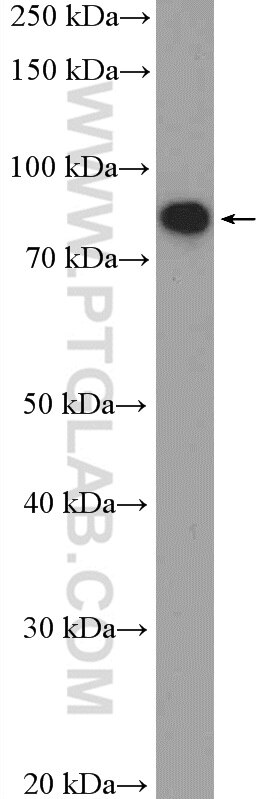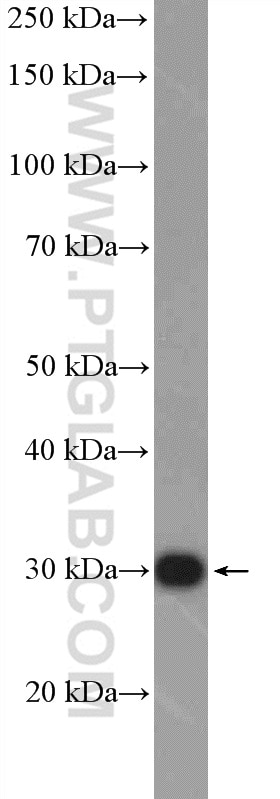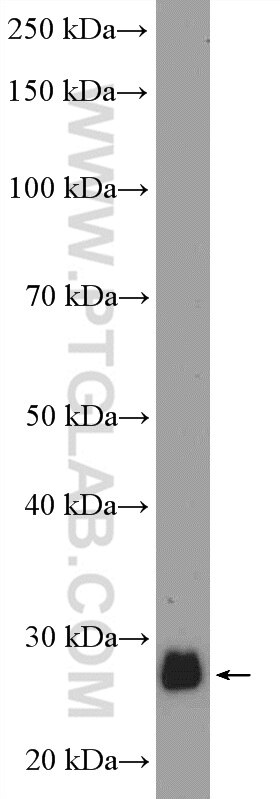Validation Data Gallery
Filter:
Tested Applications
| Positive WB detected in | L02 cells, mouse heart tissue, mouse liver tissue |
Recommended dilution
| Application | Dilution |
|---|---|
| Western Blot (WB) | WB : 1:500-1:2000 |
| It is recommended that this reagent should be titrated in each testing system to obtain optimal results. | |
| Sample-dependent, Check data in validation data gallery. | |
Published Applications
| KD/KO | See 2 publications below |
| WB | See 3 publications below |
Product Information
26115-1-AP targets C1orf103 in WB, ELISA applications and shows reactivity with human, mouse samples.
| Tested Reactivity | human, mouse |
| Cited Reactivity | human |
| Host / Isotype | Rabbit / IgG |
| Class | Polyclonal |
| Type | Antibody |
| Immunogen | C1orf103 fusion protein Ag23494 相同性解析による交差性が予測される生物種 |
| Full Name | chromosome 1 open reading frame 103 |
| Observed molecular weight | 85 kDa, 27 kDa |
| GenBank accession number | BC008115 |
| Gene Symbol | C1orf103 |
| Gene ID (NCBI) | 55791 |
| RRID | AB_2880387 |
| Conjugate | Unconjugated |
| Form | Liquid |
| Purification Method | Antigen affinity purification |
| UNIPROT ID | Q5T3J3 |
| Storage Buffer | PBS with 0.02% sodium azide and 50% glycerol , pH 7.3 |
| Storage Conditions | Store at -20°C. Stable for one year after shipment. Aliquoting is unnecessary for -20oC storage. |
Protocols
| Product Specific Protocols | |
|---|---|
| WB protocol for C1orf103 antibody 26115-1-AP | Download protocol |
| Standard Protocols | |
|---|---|
| Click here to view our Standard Protocols |
Publications
| Species | Application | Title |
|---|---|---|
Neurology Homozygous nonsense variant in LRIF1 associated with facioscapulohumeral muscular dystrophy | ||
Commun Biol SMCHD1 and LRIF1 converge at the FSHD-associated D4Z4 repeat and LRIF1 promoter yet display different modes of action
| ||
PLoS Pathog Genome-wide CRISPR screenings identified SMCHD1 as a host-restricting factor for AAV transduction
|


